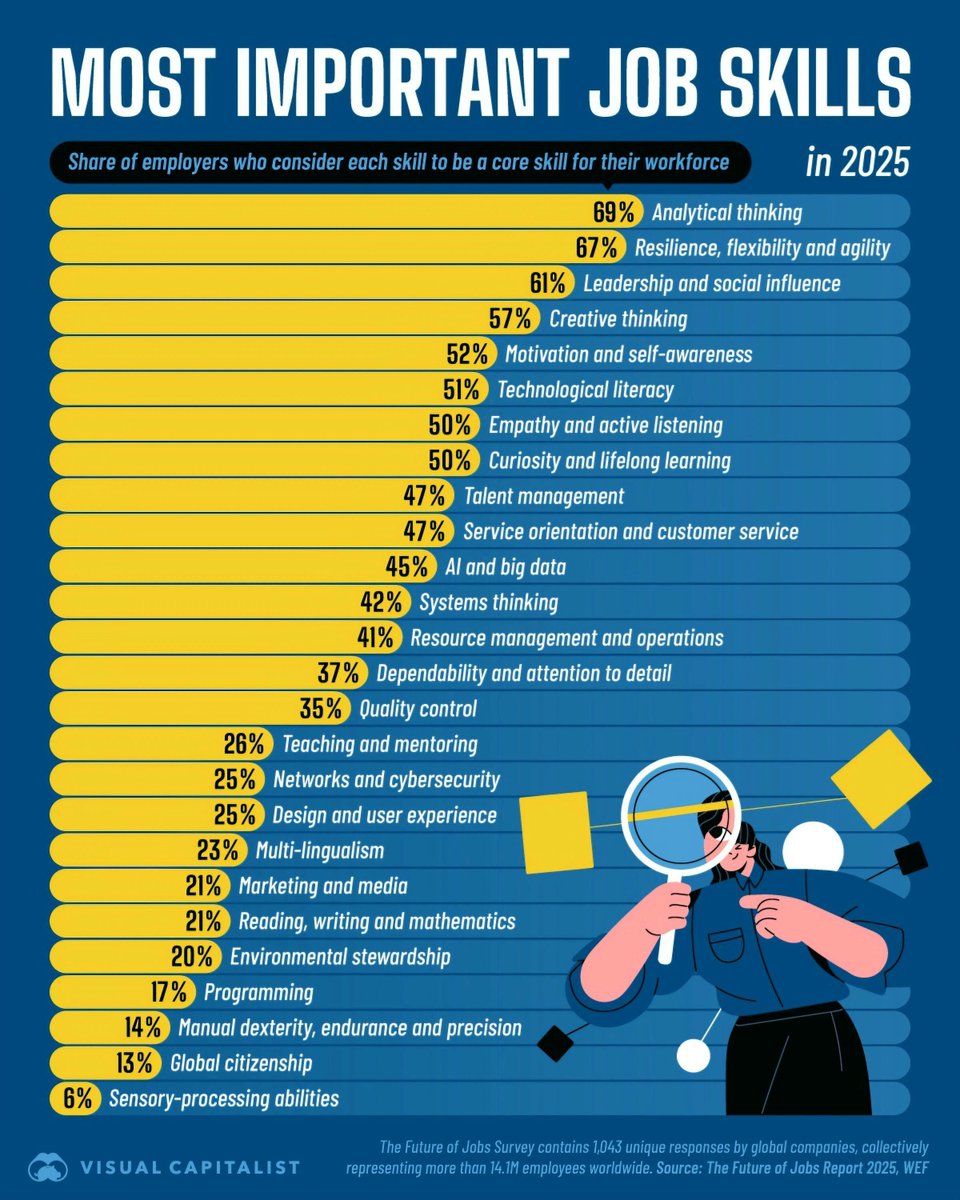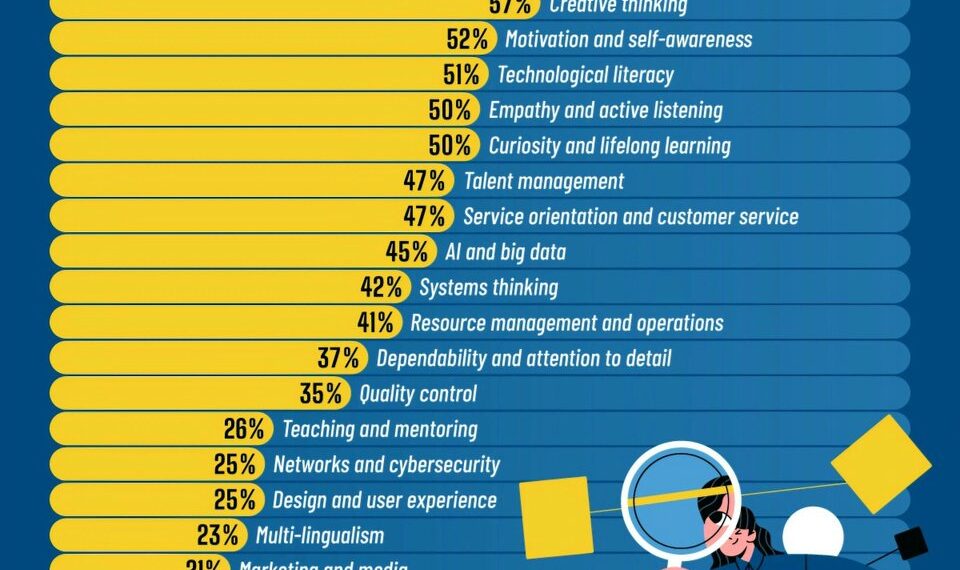Select Language:
The Most Critical Job Skills to Master in 2025 💼

1. Digital Literacy and Tech Adaptability
In 2025, digital literacy isn’t just a bonus — it’s essential. As workplaces continue to integrate artificial intelligence, automation, and cloud computing, employees need to confidently navigate various digital tools and platforms. From understanding data analytics to managing cybersecurity basics, being tech-savvy enables workers to stay ahead of the curve. Companies value individuals who can adapt quickly to new software updates and technological shifts without missing a beat, making tech adaptability a cornerstone skill across industries.
2. Emotional Intelligence and Interpersonal Skills
While technical skills get your foot in the door, emotional intelligence (EQ) defines how far you go. The ability to understand, manage, and express emotions effectively fosters strong relationships with colleagues and clients. In 2025, remote work and hybrid models are the norm, making empathy and communication even more critical. Employers seek professionals who can handle conflict gracefully, demonstrate active listening, and show genuine understanding, creating more cohesive and resilient teams.
3. Critical Thinking and Problem-Solving Abilities
Automated systems handle routine tasks, placing a premium on human ingenuity. Critical thinking involves analyzing information objectively, questioning assumptions, and identifying innovative solutions. Problem-solving skills enable employees to navigate unexpected challenges efficiently — a vital trait in fast-paced environments. Being able to evaluate situations critically and propose effective strategies makes employees invaluable, especially as industries evolve rapidly due to technological advancements.
4. Flexibility and Adaptability
The job landscape in 2025 is characterized by constant change. Whether it’s new regulations, shifting market demands, or emerging technologies, workers must be flexible and adaptable. Demonstrating a willingness to learn new skills, pivot responsibilities, and embrace change is vital for long-term success. Organizations are increasingly valuing employees who can thrive under uncertainty and contribute positively amid transformation.
5. Creativity and Innovation
In an era where automation handles administrative tasks, human creativity takes center stage. Coming up with innovative ideas, developing fresh approaches to problems, and thinking outside the box set forward-thinking professionals apart. Companies seek employees who can identify opportunities for growth, craft unique solutions, and contribute to a culture of continuous improvement.
6. Data Analysis and Interpretation
Data fuels decision-making in virtually every sector. The ability to interpret complex datasets, recognize patterns, and make data-driven recommendations is highly prized. Whether it’s marketing, finance, healthcare, or manufacturing, professionals equipped with analytical skills can provide insights that drive strategic initiatives and competitive advantages.
7. Cultural Competency and Diversity Awareness
Globalization has made workplace diversity more prominent than ever. Understanding and respecting cultural differences promotes inclusivity and collaboration. Employees with cultural competency skills are better equipped to navigate varied perspectives, foster innovation, and build global relationships. In 2025, companies prioritize hiring individuals who embrace diversity and promote equitable work environments.
8. Resilience and Stress Management
The pace of work continues to accelerate, making resilience and stress management more important than ever. Professionals who can maintain productivity and a positive attitude under pressure contribute significantly to organizational stability. Building resilience involves developing coping strategies, maintaining work-life balance, and cultivating a growth mindset — qualities that organizations actively encourage.
9. Project Management Skills
Effective project management ensures initiatives are completed on time and within budget. Skills such as planning, resource allocation, stakeholder communication, and risk assessment are critical. As projects become more complex, professionals who can coordinate cross-functional teams and deliver results efficiently are highly sought after.
10. Sustainability and Green Skills
Environmental concerns and sustainable practices are integrating into business strategies. Employees knowledgeable about sustainable methods, carbon footprint reduction, and eco-friendly operations will play crucial roles in organizations’ future success. Mastering green skills not only benefits the planet but also enhances corporate reputation and compliance.
In 2025, the job landscape demands a finely tuned mix of technical know-how, emotional understanding, and agility. Professionals who develop and hone these skills will position themselves as indispensable assets in an ever-evolving world of work.






